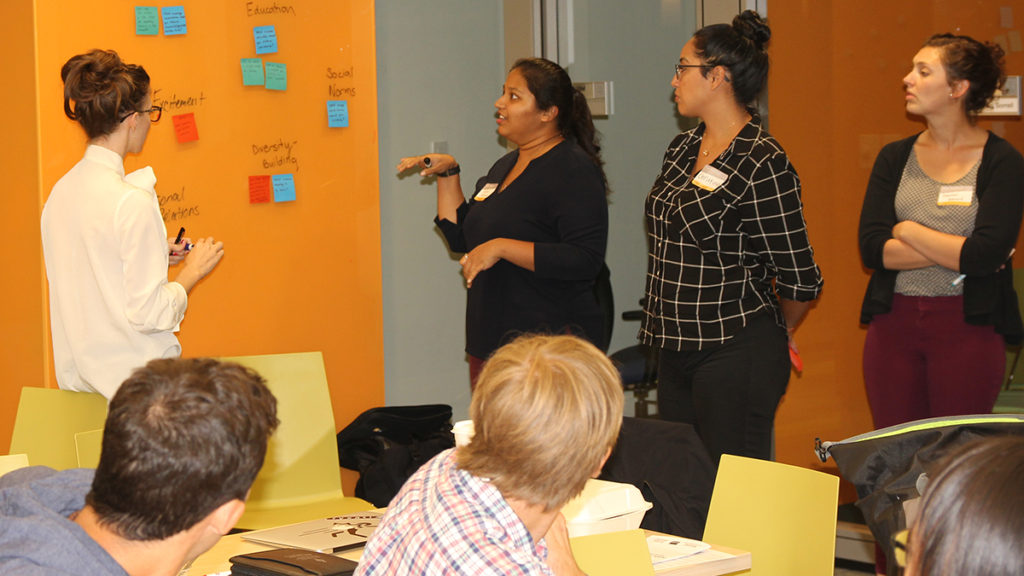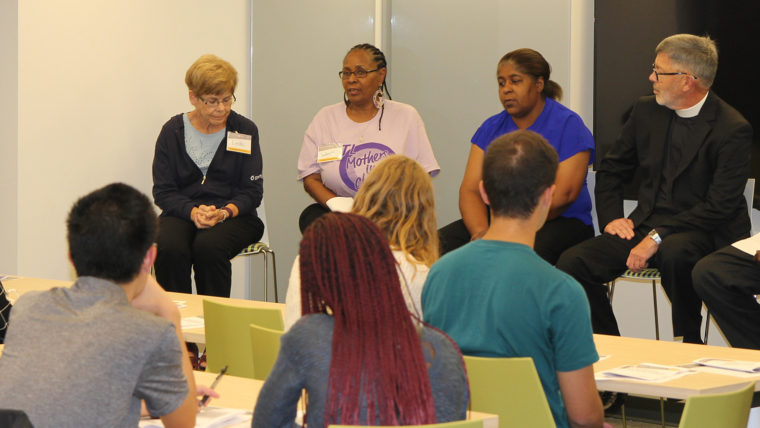It has been more than a year since Washington University in St. Louis formed its gun violence initiative. Led by the university’s Institute for Public Health, the initiative brought together faculty, medical professionals and community leaders in a series of panels and discussions to explore the public-health consequences presented by gun violence.
The multidisciplinary approach was tapped again Sept. 16-18, when the institute hosted a Public Health Challenge, in partnership with the Skandalaris Center for Interdisciplinary Innovation and Entrepreneurship. During the event, teams of Washington University students developed social and entrepreneurial concepts to reduce gun violence in St. Louis.
“One of the things the chancellor was very keen on was having a universitywide dialogue, and that there would be opportunities for student involvement,” said William Powderly, MD, the J. William Campbell Professor of Medicine, co-director of the Division of Infectious Diseases at the School of Medicine and Larry J. Shapiro Director of the Institute for Public Health. “We have a lot of really smart, innovative young people who come to WashU. We wanted to tap into that energy, initiative and out-of-the-box thinking.”
More than a dozen students finished the weekend-long challenge, during which time they heard from a number of panels, including those comprised of social and business innovation leaders, community partners including law enforcement, medical staff and behavior health experts, as well as people directly affected by gun violence.

Using those insights, the student teams generated ideas, refined them and concluded the weekend presenting sustainable business plans designed to effect positive change. A panel of judges chose the top three teams, which won seed money from the Institute for Public Health and the Skandalaris Center to help them launch their ideas.
“The Public Health Challenge is a perfect fit with the Skandalaris Center’s focus of not only engaging broad participation from our students and community members, but also training them to go from creativity to innovation to entrepreneurship,” said Emre Toker, the center’s managing director. “We are delighted to have partnered with the Institute for Public Health on this impactful event.”
The winning projects are: Secure Gun Storage, which plans to partner with entertainment venues to provide safe storage for guns; Youth Developed, Youth Implemented, a youth organization startup, with programs developed and implemented by the young people it will serve; and Across the Arch, which will use social media and other venues to repair relationships between law enforcement and the community.
Students who took part say the process was comprehensive and compelling, as they developed ideas for solutions into concrete business plans.
“Each panel brought a unique perspective and expertise, allowing us to approach the problem and develop solutions from different angles,” said Allison Poehler, a Secure Gun Storage team member.
The first panel was comprised of community members affected by gun violence. Their stories provided perspective on the importance of developing solutions that will be feasible to create change. The second panel helped refine the individual problems the community faces in responding to gun violence. The third, a panel of business leaders, helped teams refine their business plans and troubleshoot potential challenges, Poehler said.
The next step for Secure Gun Storage is begin more in-depth market research, plus further refine its business plan with assistance from the Institute for Public Health, Skandalaris Center and the Brown School’s Career Services.
